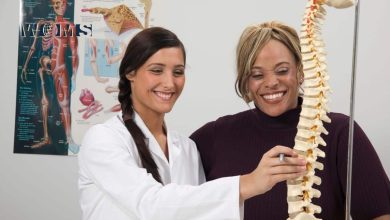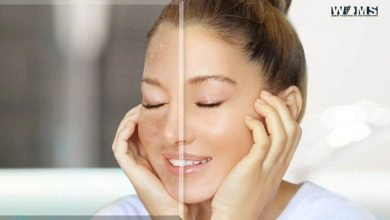4 Alternatives to 12 Step Recovery Groups

Overcoming addiction and subsequently maintaining sobriety is a big task. For most people who struggle with addiction, it’s a task that they don’t want to take on by themselves, and rightly so. The question is, what kind of help would be most effective? 12-step programs like Alcoholics Anonymous are both popular and accessible, but they also have limited usefulness for many people due to their religious undertones. There are science-based secular peer support groups, like SMART Recovery. The point is, it’s possible to get help for overcoming addiction, no matter what your budget or needs are.
#1: Secular Organizations for Sobriety (SOS)
This program is meant for anyone who struggles with addiction to drugs, alcohol, or food. Its founder, James Christopher, got sober in 1985 and ended up inspiring this non-religious program for those on the road to recovery. SOS is a free peer support program, with autonomous meetings held in many major cities. The SOS motto is “sobriety priority” the concept that sobriety is possible if you make it your top priority in life. The program asks participants to:
- Admit that they have a problem with addiction
- Accept and re-affirm this on a daily basis
- Take responsibility for their life and sobriety
- Do whatever is necessary to maintain sobriety
- Remember that life is uncertain, but can also be good
- Avoid returning to addiction to cope with difficult circumstances
#2: Women for Sobriety
This program was created in 1976 by sociologist Jean Kirkpatrick, with the goal of helping women who engaged in addictive behaviors. Rather than viewing addiction as a moral failing, like Alcoholics Anonymous, this program approached it as a symptom of underlying issues. These issues included gender inequality, guilt, shame, depression, trauma, and low self-esteem – all things that are commonly experienced by women, and which are known to play a role in the development of addictions. WFS encourages women to examine faulty thinking or other underlying issues that could be exacerbating their addictions. There’s a focus on helping participants learn how to fulfill core needs, as well as becoming more self-aware. The program emphasizes behavioral changes through:
- Cognitive approaches
- Taking care of physical needs
- Group involvement
- Positive reinforcement
#3: SMART Recovery
SMART Recovery, which stands for Self-Management and Recovery Training, is another secular alternative for those who are interested in peer support meetings. Where AA teaches participants that they’re powerless over their addictions, SMART Recovery portrays addiction as a habit that can be controlled by each individual. They integrate cognitive behavioral therapy and other science-based approaches in their 4-Point Program, centered around these four principles:
- Building, then maintaining their motivation to effect change
- Coping with the urge to use
- Managing behaviors, feelings, and thoughts effectively, without resorting to addictive behaviors
- Living a healthy, positive, and balanced life
#4: Outpatient/inpatient treatment programs
For some people who struggle with addiction, even the best support groups aren’t enough. Outpatient and inpatient programs offer a more intensive approach, with personalized treatments (such as 1-on-1 and group therapy) that can help them get to the root of their addictions.
Outpatient programs can vary in the amount of time they require; some patients will spend all day at the facility, while others will only spend a few hours daily. The emphasis of outpatient programs tends to be on therapy, plus learning healthy ways to adjust to an addiction-free life.
Inpatient programs are quite a lot stricter, with patients being monitored 24/7, and spending all day attending therapy sessions or other therapeutic activities. One of their priorities is to restrict the patient’s access to whatever substance they were abusing and to help them through detox if necessary. The facility will also provide any medications that are required since this is sometimes necessary to manage withdrawals.
These programs aren’t free, and the costs can vary by a wide margin. Some facilities are pretty basic, while others are high-end rehab centers with gourmet chefs and massage therapists. The length of the stay will also influence the cost, obviously; some people just stay for a few days, while others stay for months.
Why do people seek out alternatives to 12-step programs?
12-step programs are so universal, it’s often assumed that they’re suitable for just about everyone. In fact, that’s pretty much what they say themselves anyone is welcome to participate. That’s a nice idea, but the fact is that 12-step programs like Alcoholics Anonymous are overtly religious, and have a perspective on addiction that many find harmful. Here are some examples:
- Part of Step #1 is to admit that they’re powerless over their addiction.
- Step #2 directs participants to admit that a power greater than themselves could help them achieve sobriety.
- Step #3 directs participants to turn their wills over to the power of God.
- Steps #5 and #7 involve identifying moral defects, and asking God to remove them.
And the list goes on. As you can see, even though AA isn’t an explicitly Christian organization, it’s definitely a religious one. In fact, parts of the 12 Steps read more like a religious tract than advice to help someone achieve sobriety, even though that’s their stated goal.
One observation that’s been repeatedly made about these types of programs is that they simply aren’t based on science. They don’t acknowledge the role of trauma, chronic illness, etc. in the formation of addictions, and they don’t do much to encourage participants to identify these issues. Instead, “moral defects” are blamed for the addictions, which puts the fault on participants without empowering them to do anything about it.
This being the case, it’s easy to see why so many people would prefer an alternative to this type of program. Fortunately, there are plenty of secular peer support groups, as well as more structured forms of science-based rehab treatment.
The takeaway
Treating addiction requires hard work and the right approach for each person. Regardless of the nature or extent of the addiction, there’s a treatment program out there that can help.




